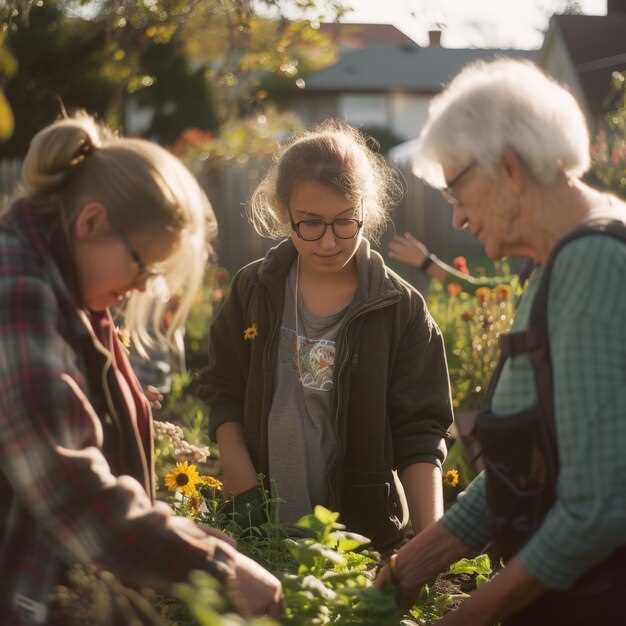
In today’s rapidly changing world, it is crucial to ensure that every individual has equal access to quality education. However, there are still many challenges that hinder the achievement of gender equity in education, particularly in rural communities. This article aims to shed light on the importance of empowering young women in these underserved areas, highlighting the transformative power of education in breaking down barriers and fostering social progress.
Education is not just about acquiring knowledge; it is a fundamental human right that enables individuals to reach their full potential. Unfortunately, in many rural communities, young women face numerous obstacles that prevent them from accessing education. These barriers can range from cultural norms and societal expectations to limited resources and inadequate infrastructure. By addressing these challenges and providing equal opportunities for education, we can create a more inclusive society that values and empowers every individual, regardless of their gender or background.
Empowering young women through education is not only a matter of justice and fairness; it is also a strategic investment in the future. When girls are educated, they become agents of change within their communities. They are more likely to marry later, have fewer children, and contribute to the economic development of their families and societies. Moreover, educated women are more likely to participate in decision-making processes, leading to more inclusive and sustainable development. By investing in the education of young women in rural communities, we are not only promoting gender equity but also fostering social and economic progress for all.
Breaking Barriers: Access to Education for Girls in Rural Areas
Overcoming obstacles and ensuring equal educational opportunities for girls residing in rural areas is a crucial step towards fostering social progress and empowering individuals to reach their full potential. In this section, we will explore the challenges faced by girls in accessing education in rural communities and discuss the importance of addressing these barriers to create a more inclusive and equitable society.
1. Limited Infrastructure and Resources
In rural areas, the lack of proper infrastructure and resources poses a significant challenge to girls’ education. Remote locations often suffer from inadequate school buildings, classrooms, and basic amenities such as clean water and sanitation facilities. Insufficient funding and limited access to educational materials further exacerbate the situation, making it difficult for girls to receive a quality education.
2. Cultural and Social Norms
Deep-rooted cultural and social norms can act as significant barriers to girls’ education in rural areas. Traditional gender roles and expectations often prioritize household chores and early marriage over schooling for girls. Discrimination and stereotypes regarding the intellectual capabilities of girls can also discourage families from investing in their education. Challenging these norms and promoting a more inclusive mindset is essential to ensure equal access to education for all.
Efforts to break these barriers and promote access to education for girls in rural areas are crucial for achieving gender equality and empowering individuals to contribute to their communities and societies at large. By addressing the limited infrastructure and resources, as well as challenging cultural and social norms, we can create an environment where every girl has the opportunity to thrive academically and pursue her dreams.
Empowering Girls: The Role of Education in Achieving Gender Parity
Education plays a crucial role in fostering gender equality and empowering girls to reach their full potential. By providing girls with access to quality education, we can break down barriers and create a more inclusive society. This section explores the transformative power of education in promoting gender parity and highlights the various ways in which it empowers girls.
1. Enhancing Economic Opportunities
Education equips girls with the knowledge and skills necessary to participate in the workforce and pursue economic independence. By receiving a quality education, girls gain the confidence and capabilities to enter traditionally male-dominated fields, challenging gender stereotypes and paving the way for a more equal society. Additionally, education enables girls to develop financial literacy and entrepreneurship skills, enabling them to create sustainable livelihoods and contribute to their communities’ economic growth.
2. Fostering Social and Political Empowerment
Education empowers girls to become active participants in their communities and advocates for social and political change. Through education, girls develop critical thinking, communication, and leadership skills, enabling them to engage in public discourse, challenge discriminatory norms, and advocate for their rights. By empowering girls to become agents of change, education plays a pivotal role in dismantling gender-based inequalities and promoting social justice.
| Benefits of Education in Empowering Girls | Examples |
|---|---|
| Improved Health and Well-being | Access to accurate health information, leading to better reproductive health outcomes |
| Reduced Child Marriage and Early Pregnancy | Increased awareness of rights and opportunities, leading to delayed marriages and pregnancies |
| Lower Rates of Gender-Based Violence | Enhanced knowledge of rights and self-defense skills, reducing vulnerability to violence |
| Increased Civic Engagement | Active participation in community development initiatives and decision-making processes |
Education is a powerful tool in promoting gender equality and empowering girls in rural communities. By investing in girls’ education, we can create a more equitable and inclusive society, where every girl has the opportunity to thrive and contribute to her community’s development.
Overcoming Challenges: Addressing Gender Stereotypes in Rural Communities
In rural areas, traditional beliefs and societal expectations often perpetuate gender stereotypes, limiting opportunities for girls and reinforcing inequality. This section explores the various challenges faced in rural communities and highlights the importance of addressing and overcoming these gender stereotypes.
1. Prevalence of Traditional Gender Roles: In many rural communities, there is a strong emphasis on traditional gender roles, where girls are expected to prioritize household chores and caregiving over education and personal development. This perpetuates the notion that girls are less capable or deserving of equal opportunities.
2. Limited Access to Education: Gender stereotypes in rural communities often result in limited access to education for girls. They may face barriers such as lack of schools, long distances to travel, or cultural norms that prioritize boys’ education. This further reinforces the cycle of inequality and hinders girls’ empowerment.
3. Restricted Career Choices: Gender stereotypes restrict the career choices available to girls in rural communities. They are often encouraged to pursue traditional female-dominated roles, such as caregiving or agricultural work, while careers in science, technology, engineering, and mathematics (STEM) fields are considered more suitable for boys. This limits their potential and perpetuates gender inequality.
4. Impact on Self-esteem and Confidence: Gender stereotypes can have a detrimental effect on the self-esteem and confidence of girls in rural communities. Constant exposure to societal expectations and limitations can lead to a lack of belief in their abilities and potential, hindering their personal growth and development.
5. Community Resistance to Change: Overcoming gender stereotypes in rural communities requires addressing the resistance to change. Deep-rooted beliefs and cultural norms may make it challenging to challenge and change traditional gender roles. Engaging the community and fostering dialogue is crucial in promoting a shift towards gender equality.
Addressing gender stereotypes in rural communities is essential for empowering girls and promoting gender equality. By challenging traditional beliefs, providing equal access to education, expanding career choices, and fostering self-esteem, rural communities can create an environment where girls can thrive and contribute to their full potential.
Building Confidence: Providing Support and Mentorship for Girls in Education
In this section, we will explore the importance of fostering confidence in girls’ education and the role of support and mentorship in achieving this goal. By nurturing self-assurance and providing guidance, girls can overcome challenges and thrive academically, ultimately contributing to their personal growth and empowerment.
Support and mentorship play a vital role in building confidence among girls in education. By offering encouragement, guidance, and a safe space to express themselves, mentors can help girls develop a positive self-image and belief in their abilities. These mentors can be teachers, community leaders, or older students who have successfully navigated the educational journey themselves.
One way to provide support and mentorship is through regular check-ins and open communication channels. By establishing a trusting relationship, mentors can understand the unique challenges faced by girls in education and provide tailored guidance. This can include academic support, career advice, and emotional encouragement, all of which contribute to building confidence and resilience.
| Benefits of Support and Mentorship for Girls in Education |
|---|
| 1. Enhanced self-esteem and self-worth |
| 2. Increased motivation and engagement in learning |
| 3. Improved academic performance |
| 4. Expanded career aspirations and opportunities |
| 5. Development of leadership and problem-solving skills |
Furthermore, mentorship programs can create a sense of community and belonging for girls in education. By connecting girls with mentors who share similar backgrounds or experiences, they can feel supported and understood. This sense of belonging fosters a positive learning environment and encourages girls to actively participate in their education.
In conclusion, building confidence among girls in education is crucial for their personal growth and empowerment. Support and mentorship provide the necessary guidance and encouragement for girls to overcome challenges and thrive academically. By nurturing their self-assurance, we can create a generation of confident and empowered girls who will contribute positively to their communities and society as a whole.
Creating Safe Spaces: Ensuring a Secure Learning Environment for Girls
In the pursuit of fostering an inclusive and empowering educational experience for girls in rural areas, it is crucial to establish safe spaces that guarantee a secure learning environment. These spaces serve as havens where girls can freely express themselves, explore their potential, and acquire knowledge without fear or discrimination. By creating such environments, we can cultivate a sense of belonging, encourage active participation, and promote the overall well-being of girls in their educational journey.
Building Trust and Confidence

One of the key aspects of creating safe spaces for girls is building trust and confidence among the students, teachers, and the community as a whole. It is essential to foster an atmosphere where girls feel comfortable sharing their thoughts, ideas, and concerns without the fear of judgment or retribution. Encouraging open communication and active listening can help establish a supportive network that empowers girls to voice their opinions and seek guidance when needed.
Addressing Gender-Based Violence
Another critical element in ensuring a secure learning environment for girls is addressing and combating gender-based violence. This includes implementing policies and protocols that explicitly condemn any form of harassment, abuse, or discrimination. By raising awareness about gender equality and educating both students and teachers about the importance of respectful relationships, we can create an environment that rejects violence and promotes mutual respect and understanding.
Furthermore, it is crucial to provide girls with the necessary tools and knowledge to recognize and respond to instances of gender-based violence. By offering comprehensive sex education and teaching girls about their rights, we empower them to protect themselves and their peers, fostering a culture of safety and support within the learning environment.
In conclusion, creating safe spaces is a fundamental step towards ensuring a secure learning environment for girls in rural communities. By building trust, addressing gender-based violence, and equipping girls with the necessary skills and knowledge, we can empower them to thrive academically, emotionally, and socially. It is through these safe spaces that we can truly promote gender equality and provide girls with the opportunities they deserve.
Beyond the Classroom: Expanding Opportunities for Girls in Rural Communities
In addition to formal education, it is crucial to provide girls in rural communities with a range of opportunities that go beyond the traditional classroom setting. By expanding their horizons and offering diverse experiences, we can empower these girls to reach their full potential and contribute to the development of their communities.
1. Encouraging Extracurricular Activities
Engaging girls in extracurricular activities can foster their personal growth and help them develop essential skills. By offering a variety of options such as sports, arts, and leadership programs, we can enable girls to explore their interests, build confidence, and develop teamwork and leadership abilities. These activities also provide a platform for girls to challenge gender stereotypes and break barriers.
2. Facilitating Vocational Training
Providing vocational training opportunities for girls in rural communities is essential for their economic empowerment. By offering courses in fields such as agriculture, entrepreneurship, and technology, we can equip girls with practical skills that enable them to pursue sustainable livelihoods. Vocational training not only enhances their employability but also empowers them to become agents of change within their communities.
| Benefits of Expanding Opportunities | Challenges to Overcome |
|---|---|
|
|
Expanding opportunities for girls in rural communities requires a multi-faceted approach that addresses the challenges they face while leveraging their potential. By creating an enabling environment and collaborating with local stakeholders, we can ensure that girls have access to a wide range of opportunities that empower them to thrive and contribute meaningfully to their communities.



